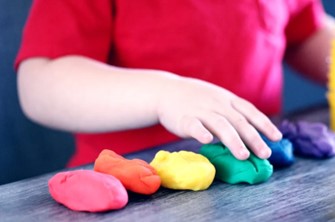The main goal of the AMIF-funded project Niitty 2 is to work together with immigrant families to improve the quality of everyday life and family services. The goal is also to narrow welfare differences and to reduce inequality caused by the background of immigrant children. The project is coordinated by Tampere University of Applied Sciences. The city of Tampere and the Pirkanmaa welfare area are project partners. During the project, families of immigrant children, family service professionals (social and healthcare services, early childhood education, dental clinic) and third sector actors are working together to achieve the goals of the Niitty-2 project.
The project identifies the everyday needs of families with immigrant children and creates guidance materials for the families and the employees those are working with families of immigrants. The guidance material has been compiled in the “family info portal” for all available. The long-term goal of the project is to improve the well-being and integration of immigrant families.
The first Niitty-1 project was implemented in 2018-2020 and developed a peer-guided family coaching model for families with immigrant backgrounds. The developed model and instructional material focused on the child’s waiting time and the toddler period. After the successful implementation of Niitty-1, the research group started to work with immigrant children aged 1-6 years and their parents to promote integration by strengthening quality within the framework of the Niitty-2 project to narrow the differences in well-being caused by the background of immigrant children and to reduce inequality.
To achieve the goals, the Niitty-2 project team started cooperation in the spring 2023. In the first phase, data and information have been collected using BIKVA model interviews. Both group and individual interviews were conducted with mothers, fathers, children and those who work with immigrant families. Information has been collected on different themes: everyday activities, early childhood education, maternity clinics, dental clinic services, and various services offered by the state.
The first workshop for all members of the target group was organized in November 2023. The ideas and suggestions were collected to identify challenges to acquire information about services, which could be helpful in everyday life. Based on the interviews and group discussion, it was found that immigrant families are happy to come to Finland and they want to build a better life here. But integrating into a new culture and society is not easy. Immigrant families face cultural, social and personal challenges at different stages of integration. The challenges identified from interviews and workshop were for example: a) unavailability of the information about the support services b) language barrier is a big problem for children and families. c) lack of cultural knowledge of the service workers d) challenge of employment for the parents that effect in family and children e) discrimination at school based on background f) learning Finnish at day care is difficult to English speaker children g) learning Finnish as a second language effect mental wellbeing and higher education of immigrant children.
To address these challenges, Niitty-2 project helps the immigrant families by expanding and developing family info portal. In addition, community support, cultural orientation programs, language classes, and targeted assistance from government and non-governmental organizations are essential in order to support the integration of immigrant children and families.
Author:
Nasrin Jahan Jinia
Expert, Niitty-2 project & lecturer department of social services and health sector, TAMK
(edit: Piia Roos & Anna Aikasalo)
Picture: Pexels.com / Alexander Grey (free to use)


